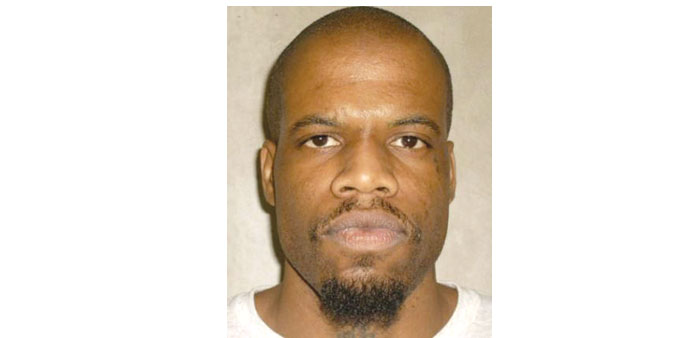AFP/Washington
A botched execution, which left a prisoner writhing in agony after he was injected with an untested drug cocktail, has focused attention on America’s struggle to find the best way to put people to death.
Rights groups expressed disgust yesterday after convicted rapist and murderer Clayton Lockett’s gruesome death at the hands of Oklahoma authorities, who administered the new mix of drugs.
Officials postponed a second execution that had been due to take place later on Tuesday and said they would re-examine measures taken since the United States was confronted with a drug shortage.
Pharmaceutical firms from Europe, where the death penalty has been abolished, have halted exports of execution drugs to the United States, and US states are struggling to develop alternatives.
Defence lawyers and campaigners against the death penalty argue that US-made drug cocktails are untested and that slow deaths like that suffered by Lockett amount to a form of illegal torture.
Local journalist Graham Brewer recounted the scene: “He begins convulsing, lifting his head and his chest out of the gurney, shaking and moving his head, even mumbling a few times.”
The prison warden closed the blinds preventing reporters from witnessing Lockett’s eventual death throes.
Oklahoma Department of Corrections spokesman Jerry Massie said the drugs -- a sedative, an anaesthetic and a lethal dose of potassium chloride -- at first “didn’t go into the system.”
Lockett died 43 minutes after the process began, surviving half-an-hour longer than is typical in an execution by lethal injection.
Asked about the case, White House spokesman Jay Carney said President Barack Obama supports the use of the death penalty in “heinous” cases if the executions are “carried out humanely.”
“This case fell short of that standard,” Carney said.
Oklahoma’s Governor Mary Fallin, a strong supporter of the death penalty, ordered “a full review of Oklahoma’s execution procedures to determine what happened and why.”
But Lockett’s defence attorney, Madeline Cohen, demanded an independent inquiry, claiming that her client had in effect been “tortured to death.”
Other experts agreed, arguing such a death appeared to contravene the US Constitution’s ban on “cruel and unusual punishment.”
“This execution went horribly wrong, the inmate appeared to suffer a great deal,” law professor Lyn Entzeroth of the University of Tulsa, Oklahoma said.
“It is a form of torture ... All this raises the constitutionality and the appropriateness of what Oklahoma did,” she said.
Entzeroth said the “incredible difficulty of carrying out the lethal injection in a transparent way” was one of the reasons why in recent years several US states have abolished or suspended executions.
Deborah Denno, a law professor at Fordham University, said that since European firms halted exports of pentobarbital -- previously used in executions -- US states have run out of supplies.
US firms mixing their own lethal cocktails for the execution market have done so reluctantly and in complete secrecy.
“That forces the states who want to use lethal injection to improvise. This improvisation creates this execution mess,” said Professor Robert Blecker of the New York Law School
“I personally favour the firing squad: It acknowledges it is a punishment, and it doesn’t seem medical,” said Blecker, a defender of the death penalty who has long opposed lethal injections.
“Lethal injection procedures are simply not working,” Denno said.
“Departments of corrections over the last 32 years have tried everything they can to make them work, and they simply don’t. So they keep trying something different.”

Death row inmate Clayton Lockett who died of an apparent heart attack due to problems with lethal injection.
